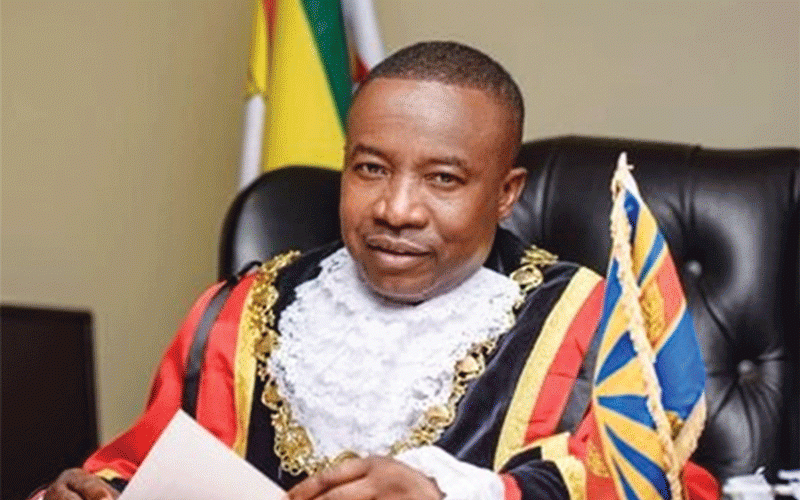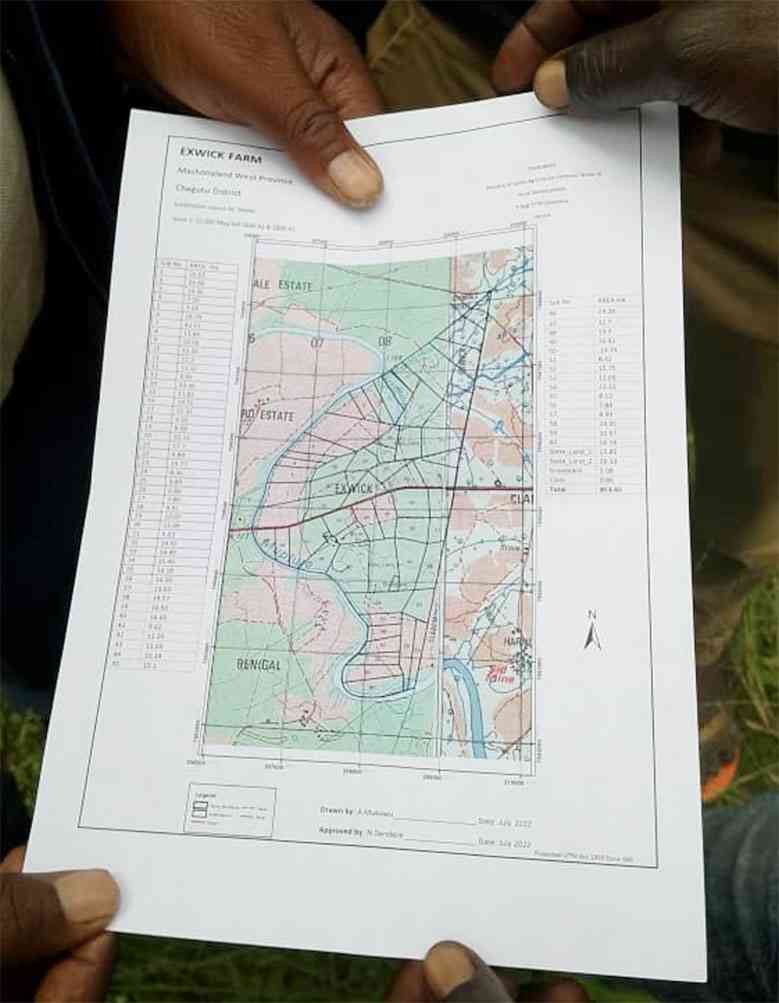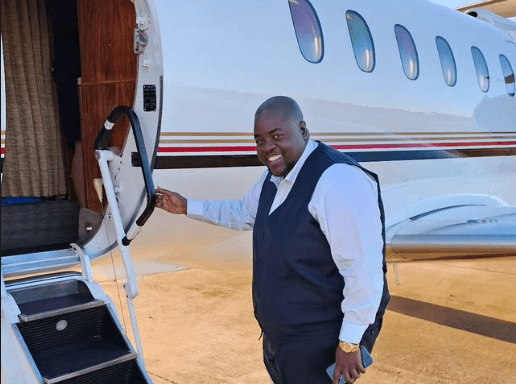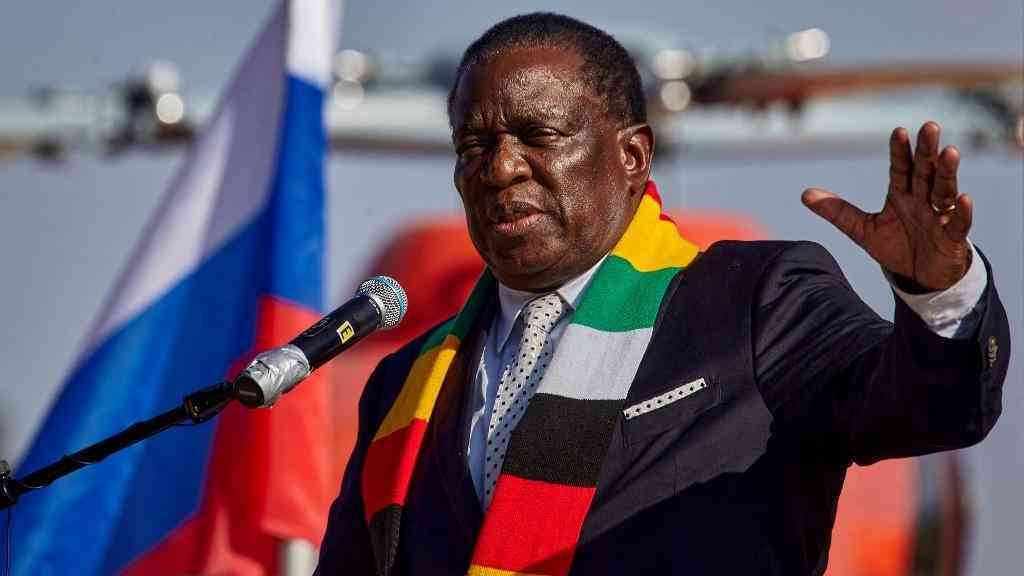
BY MOSES MATENGA
President Emmerson Mnangagwa’s former advisor Christopher Mutsvangwa has revealed that the latest Zanu PF factional wars were triggered by the fight for control of the country’s fuel industry, a fight he said was behind the 2017 coup.
The Zanu PF politburo last week suspended the leaders of the party’s youth league — namely Pupurai Togarepi, Godfrey Tsenengamu and Lewis Matutu — after the trio accused two businessmen of running cartels that were allegedly pillaging Zimbabwe’s economy.
Matutu and Tsenengamu claimed that Kudakwashe Tagwirei, a Zanu PF financier who owns fuel company Sakunda Holdings, and Bill Rautenbach of Greenfuels were fuelling the country’s economic problems through illicit deals.
Mutsvangwa yesterday told The Standard in an interview that so-called cartels thought they were in charge of the government.
The war veterans leader claimed that Trafigura, which is in a partnership with Tagwirei, thought it had “executive powers in Zimbabwe”.
“The cartel almost grabbed power in 2017. Their hold on power since 2017 has been sliding down a greasy pole,” Mutsvangwa said.
“From being at the top in 2017, they are now sliding down a greasy pole that is why Trafigura is running for the exit because the cartel was saying do whatever you want, we have the executive powers in the country.
- Chamisa under fire over US$120K donation
- Mavhunga puts DeMbare into Chibuku quarterfinals
- Pension funds bet on Cabora Bassa oilfields
- Councils defy govt fire tender directive
Keep Reading
“They were saying they run Munhumutapa Building (Mnangagwa’s office), we run the Ministry of Finance, the Reserve Bank of Zimbabwe, all the ministries as you know are at their command and they say all the enabling ministries are at their command.”
Trafigura, a commodities trader, has indicated that it is in the process of taking control of its Zimbabwe business after buying out its local partner, Sakunda Holdings.
Tagwirei owned the majority of the shares in Sakunda where he was roped in as a local partner in compliance with the country’s since discarded indigenisation law. Sakunda operates Trafigura’s Puma Energy fuel outlets. It also controls the Feruka oil pipeline.
Mutsvangwa claimed that some southern African countries were also not happy with Trafigura’s monopoly over the pipeline.
The former war veterans minister said Trafigura’s activities had allegedly caused turmoil in Zanu PF and angered businesses around the region.
“Typical of all monopolies, the Sakunda cartel has engendered the ire of a phalanx of enemies,” he said.
“There is the outrage of Zanu PF youths and their stolen prospects of a better future, jealous of peer global fuel traders.
“Then there are global mining houses, particularly the cobalt giants of Congo DR (Democratic Republic of Congo).
“They see a price-gouging monopoly denying them the savings, convenience and efficiency of the huge world-class inland port; underground fuel storage facilities at Mabvuku.
“Finally, there is the denial to Zimbabwe of an eponymous financial and logistics service industry as it caters for the sub-region.
“Limpopo and other northern regions of South Africa would be drinking from Mabvuku, just as traditional clients Congo and Zambia, southern Malawi and central Mozambique.”
He revealed that former South African president Kgalema Motlanthe recently met Mnangagwa over the issue.
“Other major new cobalt companies in the DRC are angry with the cartel in Zimbabwe and they have gone to approach South Africa and former president Motlanthe, who is chairman of one of the unhappy companies called Ivan Hoe Mines, and that is why Motlanthe approached President Mnangagwa in Maputo three weeks ago during (Mozambican President Filipe) Nyusi’s inauguration, saying we can’t use this expensive pipeline,” he added.
Mutsvangwa, however, refused to reveal the names of Zanu PF officials that were advancing the interests of the alleged cartels.
“I leave that to you. What I know is the historical aspect of these cartels. They had political support in 2017 and now there can’t be a vacuum,” he added.
“All I want is for the Mabvuku pipeline to be a major sub-regional fuel trading centre.
“The 500 million litres of underground oil there has not been utilised since 1998.
“If the market is opened up, all the copper mines in the Democratic Republic of Congo would want to buy from Mabvuku.”
Mutsvangwa has been linked to Mining, Oil and Gas Service (MOGGS), a firm that reportedly wants to build a second fuel pipeline for Zimbabwe.
Vice-President Constantino Chiwenga recently revealed in court papers that he was bought two luxury cars by Tagwirei, whose firm also bankrolled the controversial command agriculture programme.
When Tagwirei’s father died in 2017, business was brought to halt when government officials, including Mnangagwa, made a beeline to the businessman’s rural home in Shurugwi for the burial.
Mutsvangwa claimed the public spat between the Zanu PF youths and the party’s leadership showed that the alleged cartels were losing their grip on the ruling party and government.
“They are people who are sulking because what they wanted to achieve was frustrated,” he said.
“They wanted to show that the cartel was still powerful and individuals aligned to the cartel were trying to flex their muscle to say, look, we are going to fire those who have attacked us publicly.”
Some Zanu PF heavyweights allegedly wanted the trio to be fired from the party, but others fought in the youth league’s corner showing widening rifts in the politburo.
Mutsvangwa claimed that he started calling for an end to the Trafigura monopoly during former president Robert Mugabe’s time and that this angered the former ruler who was toppled by the military in 2017.










